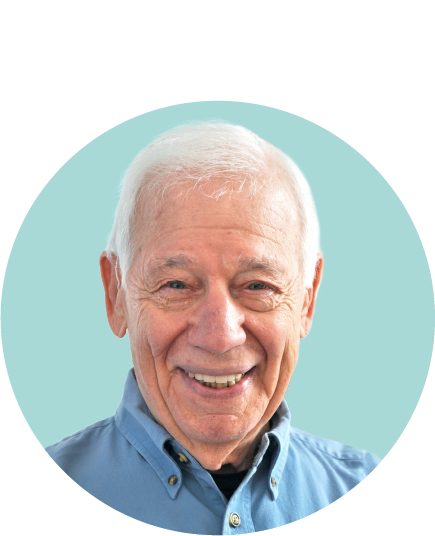About Stanley Keleman
Stanley Keleman is the founder of Formative Psychology® a somatic approach to daily living that builds upon the biological principles of how life forms itself. Its concepts and principles are the foundation for learning how to form an individual life that brings forth one’s personal desires and satisfactions.
An internationally recognized pioneer in the study of the body and its formative potential, Stanley was a charismatic speaker and teacher known for his authority and commitment to an experiential and an anatomical understanding of the body that stood apart from other psychological approaches. He was the founder and Director of the Center for Energetic Studies in Berkeley California,1972-2018. Along with maintaining a full private practice and a small press for his numerous publications, he offered frequent professional and public programs.
For his outstanding contributions to the field of Somatic Psychology, he received an Honorary PhD from Saybrook University and Lifetime Achievement Awards from the USA and European Body Psychotherapy Associations. As one of the founders of the Humanistic Psychology Movement in the United States, his work is archived at the University of California Santa Barbara.
The first son of Hungarian immigrants, Stanley spent his early years in Brooklyn New York. His life-long commitment to functional anatomy began as a teenager when he enjoyed exercising his strong muscular body. As a young man and a champion athlete, he continued honing a keen interest in how the body functions. Following his own style of experiential education and encouraged by an athletic coach, Stanley graduated from the Chiropractic Institute of New York in 1954.
While maintaining a thriving private practice in the New York’s Upper West Side, he followed his love of hands-on learning through associations with people of similar interests. Stanley credits Nina Bull (The Attitude Theory of Emotion) and Karlfried Graf Von Dürckheim (The Way of Transformation: Daily Life as Spiritual Exercise) as two powerful influences; Nina for her original neurophysiological research at Columbia University and the orientation to somatic psychology; Karlfried for affirming the body is the center of a multi-dimensional self.
Personal relationships deepened his commitment to a psychology in which the body’s actions are primary, especially with Dr. Med Dori Gutscher and the Medard Boss Daisen School in Switzerland; Al Lowen MD, founder of Bio-energetics; Shelley Hendler MD, research biochemist at the Salk Institute La Jolla CA; Alan Watts and Joseph Campbell, as well as early experiences at the Alfred Adler Institute and the New School of Social Research in New York.
Over the years Stanley did not deviate from his focus to understand and apply functional anatomy to forming a daily life that is also a satisfying personal life. The central issue remained clear: The body’s formative process is key to creating meaningful behavioral changes that endure over time.
He also faced a challenge: There was no adequate language to express what he understood. Utilizing formative principles to solve this dilemma, Stanley dedicated himself to developing an experiential body-based language for expressing personal and subjective experience. This new way of communicating experience, as well as thinking and speaking about the body, represents a milestone, an epistemological break and revolutionary addition to the field of Somatic Studies.
Stanley loved sailing the seas of creativity, always alert to new and deeper connections. For 10 years he invited Joseph Campbell to co-lead an annual program and together they explored the relationship of anatomy, neurophysiology and the stories and images of mythology. Stanley lived what he taught so the range of his interest matched his stage of life. He brought an enthusiasm to forming all of them, the alpha adult, the elder and then the aging soma. For many years Dreams and the Body and Taking Charge of Your Life were eagerly anticipated annual programs, each one presented with a fresh and deepened perspective.
He routinely followed the latest scientific developments with an unusual ability for making novel connections and practical applications to embodied experience. As his interest became more focused on the formative potential of human experience, he incorporated Einstein’s equation of E = mc2, Quantum Dynamics and the latest neurophysiology and brain research into his conceptual thinking and everyday practice.
He considered the methodology of Formative Somatic Practice to be the very heart of his work. It continues to be an important contribution to our shared humanity and a source of optimism for the empowerment of human forming and creativity. Always honoring embodied experience as his teacher, Stanley gave of himself generously, especially to those who shared his discoveries. His work continues to influence the lives of many.
Marilyn Haller 2023
For further information explore this website and stanleykeleman.com.
For personal questions or education in Formative Psychology contact a practitioner or contributor, and teaching programs.

